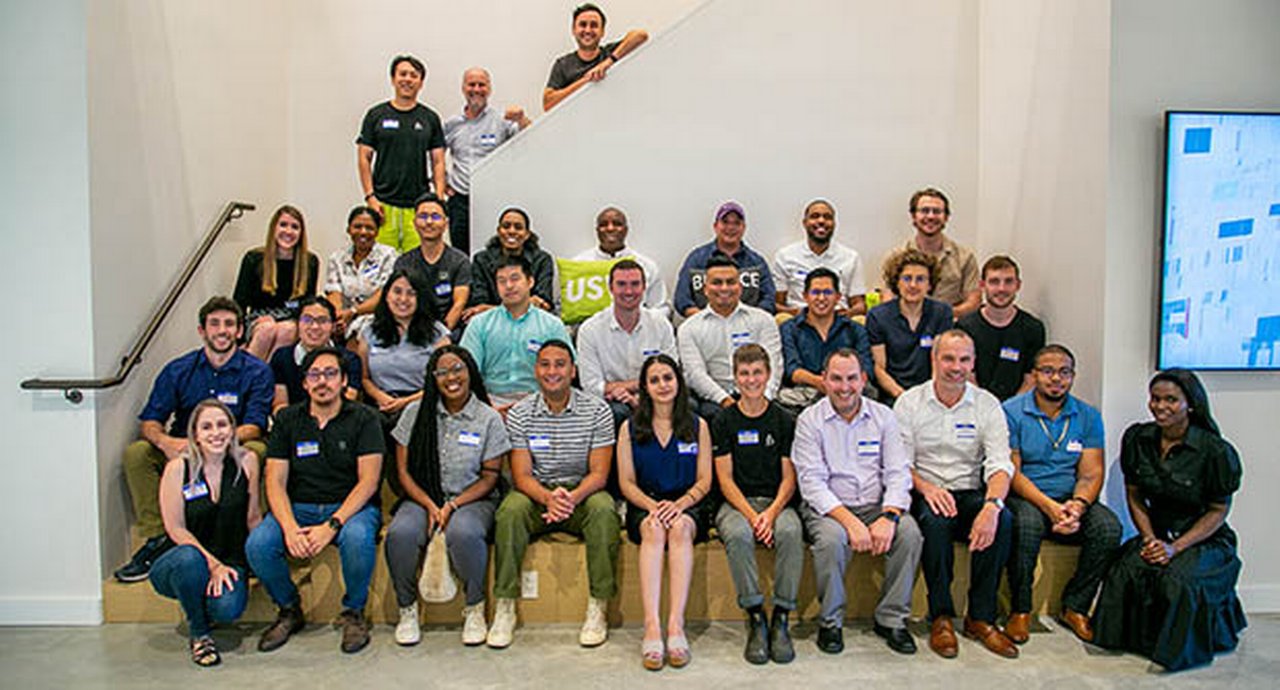20 August 2025
flow’s Will Monroe catches up with Sam Marks, the CEO of non-profit FJC, to find out how creative philanthropic financing is providing some of the answers to New York’s housing crisis
MINUTES min read
New York, the US’s most populous city, enjoys a well-earned reputation as a vibrant social, cultural and economic hub. But its housing supply is falling short. The chronic shortage of affordable housing in New York City (NYC) has been well documented, with the problem affecting New Yorkers from all demographics. For decades housing supply has failed to keep pace with demand. The NYC Housing and Vacancy Survey is a citywide survey conducted every three years. The most recent 2023 survey,1 published in February 2024, outlines that the net rental vacancy rate stands at just 1.41% for all housing accommodation; the lowest rate since 1968. For the most affordable units the net rental vacancy rate is less than 1%.
According to the Coalition for the Homeless, an organisation that provides support for homeless individuals and families in NYC, homelessness is at its highest level since the Great Depression of the 1930s.2 In February 2025, official statistics show that 115,000 people slept each night in shelters,3 although the Coalition estimates the true figure is much higher, with 350,000+ New Yorkers likely to have been without homes in the month.
Tackling the housing challenge
Efforts to tackle the problem are ongoing. In November 2024 the long-awaited City of Yes for Housing Opportunity proposal was passed, which will see a further US$5bn put towards housing and other critical infrastructure.4 This initiative comes after the 2014 Housing New York Plan, which aimed to create – and preserve – 200,000 high-quality, affordable homes over 10 years.5 With this target met ahead of schedule, an expanded plan, Housing New York 2.0, sought to construct a total of 300,000 homes by 2026.6
These schemes form part of the solution, but on their own they are not enough to fix what is an endemic problem. To meet housing supply demand – especially among vulnerable and low-income communities – charities, non-profits and philanthropic donors can play a major role. As the CEO of FJC, a NYC-based charity with a mission to “amplify the impact of philanthropy”, Sam Marks is all too familiar with the challenge. “The housing affordability and homelessness issue has myriad causes, and there is no easy fix,” he says. “But part of the solution is increasing housing supply, particularly housing that’s available to low-income people and to the unhoused.”
There is a sophisticated and growing network of non-profit developers with strong track records of building and operating permanent affordable and supportive housing for a broad mix of low-income residents in NYC. However, unlike for-profit developers, these non-profit developers are often hampered by funding bottlenecks in the predevelopment stage. Before construction work begins, financing for up-front costs needs to be found.
“Part of the solution is increasing housing supply, particularly housing that’s available to low-income people and to the unhoused”
Rethinking the role of philanthropy
Cue the launch of FJC’s Working Capital Revolving Match Fund (Revolving Fund), which aims to fast-track philanthropic dollars in NYC to the front lines, so that entrepreneurial non-profits can fund predevelopment for affordable and supportive housing projects. The Revolving Fund’s unique structure sees the fund supply low-interest loan capital to non-profits over a five-year term, with the condition that they match it with contributions from their donors. The same philanthropic dollar can be used multiple times on a pipeline of development projects; a ‘recyclable’ model that contrasts with more traditional forms of philanthropic giving that focus on general operational support.
Deutsche Bank’s Community Development Finance Group (CDFG) has made an up to US$1m program-related investment (PRI) loan commitment to support the launch of the Revolving Fund. The PRI loan was made through Deutsche Bank Americas Foundation’s New Initiatives Fund impact investing programme. Based in NYC, CDFG is responsible for delivering on the bank’s obligations under the US Community Reinvestment Act and provides lending, investing, and grant-making that supports organizations and social enterprises to achieve positive outcomes for low- and moderate-income communities. As flow’s 2019 ‘Community opportunity’ article noted, much of CDFG’s loan and investment portfolio focuses on the city’s affordable housing stock.
Feona Castro, Vice President at CDFG, notes that the fund’s revolving nature means that funds can be provided at scale at the crucial predevelopment stage: “The goal of our programme-related investments is to catalyse and scale high-impact projects that respond to NYC’s most pressing needs. This investment aims to do just that by unlocking additional philanthropic capital. This can be repurposed as liquidity for non-profit developers to pursue more mission-driven real estate projects at the scale needed to address the city’s affordable housing crisis.”
The partnership with FJC builds on Deutsche Bank’s Working Capital and Supportive Housing Acquisition and Rehabilitation Effort (SHARE) programmes – established in 1994 and 1998 respectively – which have enabled the creation and preservation of over 14,700 affordable homes and numerous community facilities since their inception. These programmes are cornerstone offerings delivered by the current CDFG team, who are building on this past success and amplifying their reach through expanded partnerships with groups such as FJC.
“We are thrilled to scale up and expand this long-standing programme, which will provide new capital sources for building more housing units in NYC through our partnership with FJC,” says Cheryl Gladstone, Director and Head of CDFG. This effort carries forward the groundwork that was laid during Marks’ time as a former Vice President on the CDFG team. Marks notes: “CDFG continues to be a springboard for innovation around complex issues, including this current effort to bring new individual donors into the fold of supporting non-profits and community development. The legacy of how Deutsche Bank thinks about innovative investments lives on.”
“The goal of our programme-related investments is to catalyse and scale high-impact projects that respond to NYC’s most pressing needs”
Tangible community impact
The Revolving Fund was preceded by a 2023 pilot fund that FJC launched in partnership with the Fortune Society;7 a non-profit based in NYC that seeks to facilitate the successful reintegration of incarcerated or formerly incarcerated individuals. This pilot, Marks notes, was the “proof of concept” for the Revolving Fund and used a very similar format modelled on Deutsche Bank’s SHARE and Working Capital programmes.
One success story from the pilot fund was the provision of predevelopment funds for the Castle Gardens initiative, a housing development in West Harlem comprising 114 apartments.8 Around half of these units provide permanent housing for formerly incarcerated individuals, and an affordable rental component delivers low-cost housing for individuals and families who earn less than 60% of the median family income.
Scaling up
Over the medium to long term, FJC’s Revolving Fund is aiming to provide funds for the development and/or preservation of several hundred new units of affordable housing, with a target of US$300-500,000 in new philanthropic capital deployed as revolving, recyclable funds for non-profits. In turn, Marks notes that with real estate predevelopment costs covered, non-profits’ operating cash can be freed up for other initiatives.
If this effort, funded with the support of Deutsche Bank, achieves its target impact outcomes, it could serve as a strong use-case for individual/private wealth donors to include affordable and supportive housing as a priority area for their charitable giving going forward, which would unlock much-needed funding to address the severe shortage of affordable housing in NYC.
Although Marks believes that creative forms of charitable giving have been largely untapped to date, he believes initiatives like the Revolving Fund can also be applied beyond the affordable housing space: “We’re trying to use this programme as a way to incept this idea among individual donors, non-profit board members, and other financially sophisticated stakeholders that want to advance their favourite non-profit missions.”
Ultimately, while the Revolving Fund forms one small piece of the puzzle when it comes to solving the NYC housing crisis, it’s clear that innovative and agile non-profit initiatives such as this have an integral part to play.
Image: The Fortune Society
Sources
1 See nyc.gov
2 See coalitionforthehomeless.org
3 See data.cityofnewyork.us
4 See nyc.gov
5 See nyc.gov
6 See nyc.gov
7 See fortunesociety.org
8 See thenyhc.org



